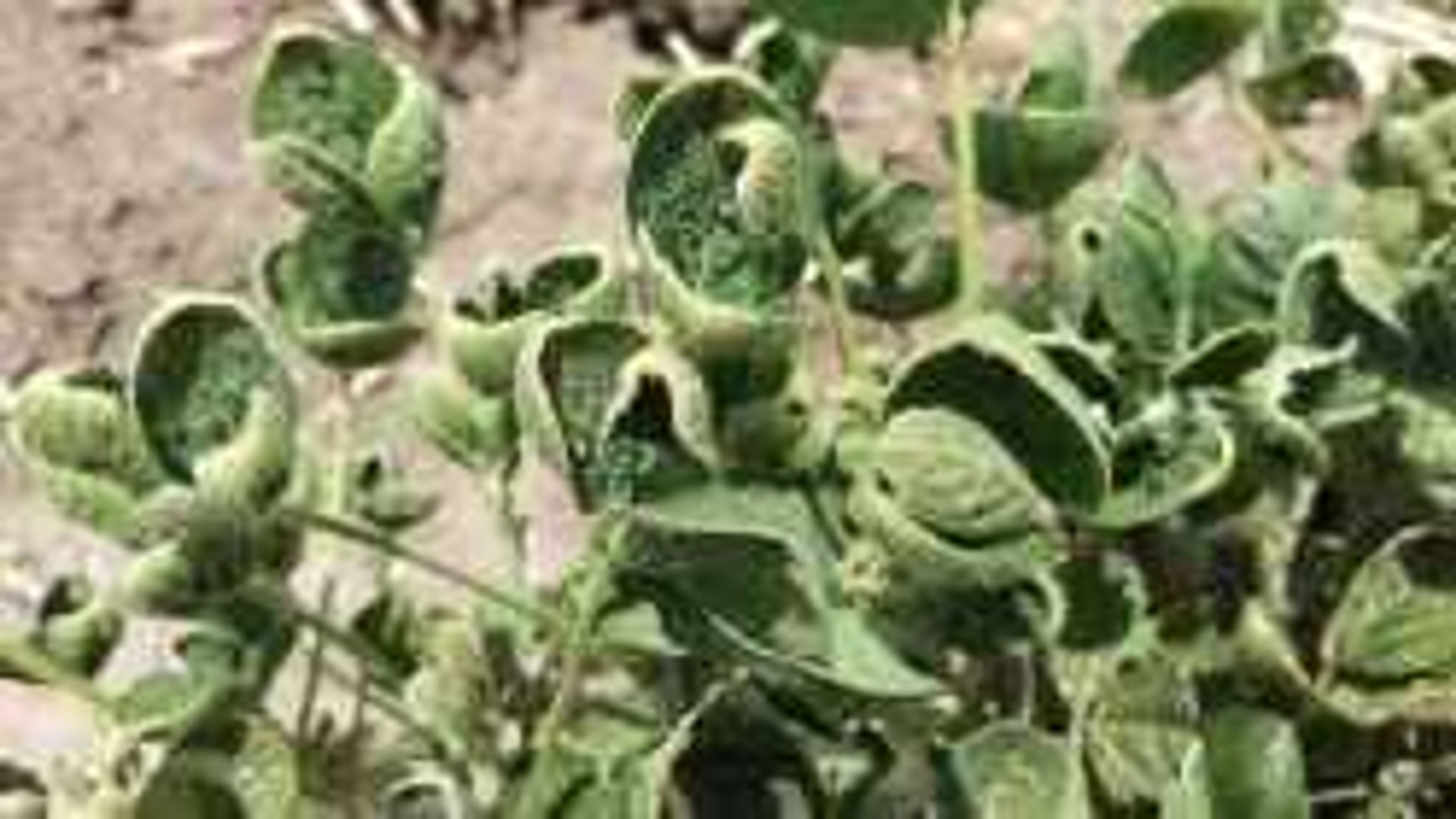A federal jury in Cape Girardeau ruled Saturday that two of the world’s largest agribusiness companies, Monsanto Co. and BASF Corp., must pay $250 million in punitive damages to a Southeast Missouri peach farmer for damage to his orchards caused by their dicamba-related products.
The quarter-billion-dollar award came a day after the jury voted to give $15 million in compensatory damages to Bill and Denise Bader of Campbell, Missouri, owners of Bader Farms Inc., the largest peach producer in Missouri.
In its lawsuit against Monsanto and BASF, Bader Farms alleged dicamba herbicides produced by the companies had drifted off neighboring fields and damaged or killed thousands of trees in Bader’s peach orchards over the past five years. It also alleged the companies conspired to develop a dicamba-tolerant seed system farmers would be forced to purchase rather than risk dicamba drift damage.
Throughout the trial, Monsanto and BASF denied any of Bader’s crop damage was their responsibility, instead blaming illegal dicamba applications by other farmers as well as weather events, diseases and poor crop management. They also denied engagement in a dicamba-related joint venture or conspiracy.
The verdict against BASF and Monsanto will likely set the tone for numerous other dicamba-related lawsuits pending across the nation where it is believed millions of acres of crops have suffered dicamba damage since 2015.
Citing Monsanto’s 2018 net worth of $7.8 billion, attorneys for Bader Farms told the jury $200 million — or 2.5% of Monsanto’s value — would be a reasonable punitive damage amount.
The jury deliberated about 30 minutes Saturday morning before deciding $200 million was not enough.
The Baders deferred questions about the jury’s award to their attorneys.
“We believe justice has been served,” said Bev Randles, one of the attorneys representing Bader Farms, adding she wasn’t surprised the jury exceeded the suggested punitive damage amount. “They (Monsanto and BASF) needed a very strong message in order to deter them and any other corporation from doing these sorts of things and I think that message was received today.”
Monsanto attorney Jan Paul Miller declined to comment after the trial.
“The company will release a statement,” he said.
Shortly afterward, Bayer issued an email statement expressing disappointment with the trial outcome.
“While we have empathy for Mr. Bader, Monsanto’s products were not responsible for the losses sought in this lawsuit and we look forward to appealing the decision,” the company said in the statement.
“Despite the verdict, Bayer stands behind Xtend seed and XtendiMax herbicide products, which enjoy a 95% weed-control satisfaction rate from the farmers who use them,” the statement continued. “We want our customers to know that, as this legal matter continues, we remain steadfast in our commitment to delivering them the effective and sustainable tools they need in the field.”
BASF also said it was “disappointed” and “will be looking at our post trial options,” BASF spokeswoman Odessa Patricia Hines said in an emailed statement Saturday afternoon.
“Dicamba based herbicides, like Engenia herbicide, are critically important tools for growers battling resistant weeds in their soybean and cotton fields. The evidence revealed that we formulated our dicamba product to significantly reduce off-target movement and conducted extensive testing before receiving EPA approval to market Engenia herbicide in 2017,” Hines said.
It is believed Monsanto and BASF will be required to equally share in the compensatory and punitive damage awards under the terms of joint liability.
Randles, who first met Bader on his farm in the summer of 2016 during her unsuccessful lieutenant governor campaign, said she anticipates the jury’s verdict and monetary awards will be appealed to the 8th Circuit Court of Appeals and the case could remain in litigation for years.
“If there is an appeal process, obviously all this gets dragged out a little bit more,” she said. “We’ll just see if they (Monsanto and BASF) appeal and, if they do, we’ll just go from there.”
Meanwhile, the future of Bader Farms remains uncertain.
“It will be very difficult for them to continue to exist in a dicamba world,” she said.
“What I will always commend Bill Bader for is that no matter what anyone said, no matter how many times people told him to just pipe down, be quiet and you can’t take on a giant like Monsanto and a giant like BASF, he said he could do it and he was willing,” Randles said. “You’ve got to commend a guy like that.”
Do you crave business news? Check out B Magazine, and the B Magazine email newsletter. Check it out at www.semissourian.com/newsletters to find out more.
Connect with the Southeast Missourian Newsroom:
For corrections to this story or other insights for the editor, click here. To submit a letter to the editor, click here. To learn about the Southeast Missourian’s AI Policy, click here.








